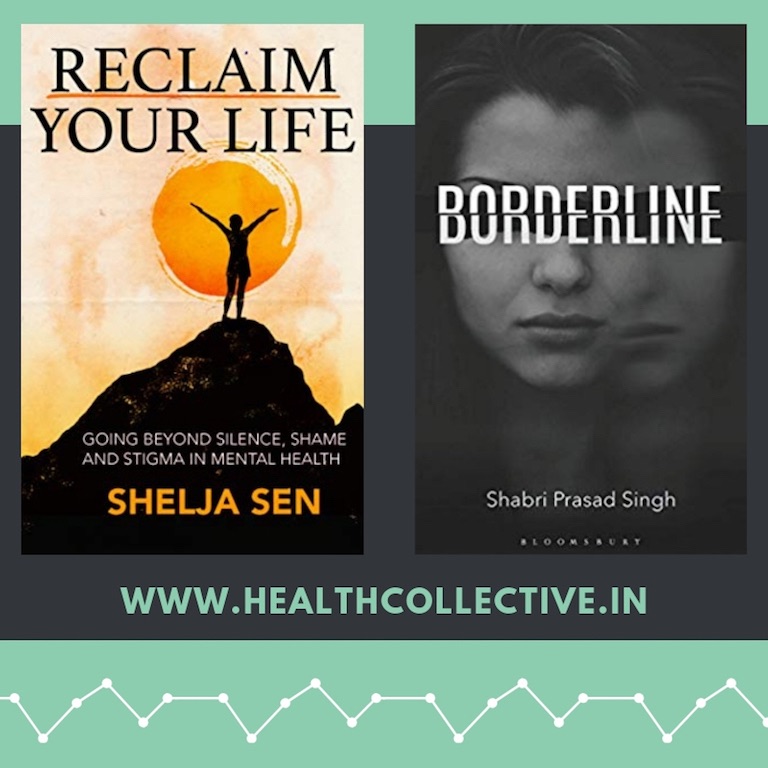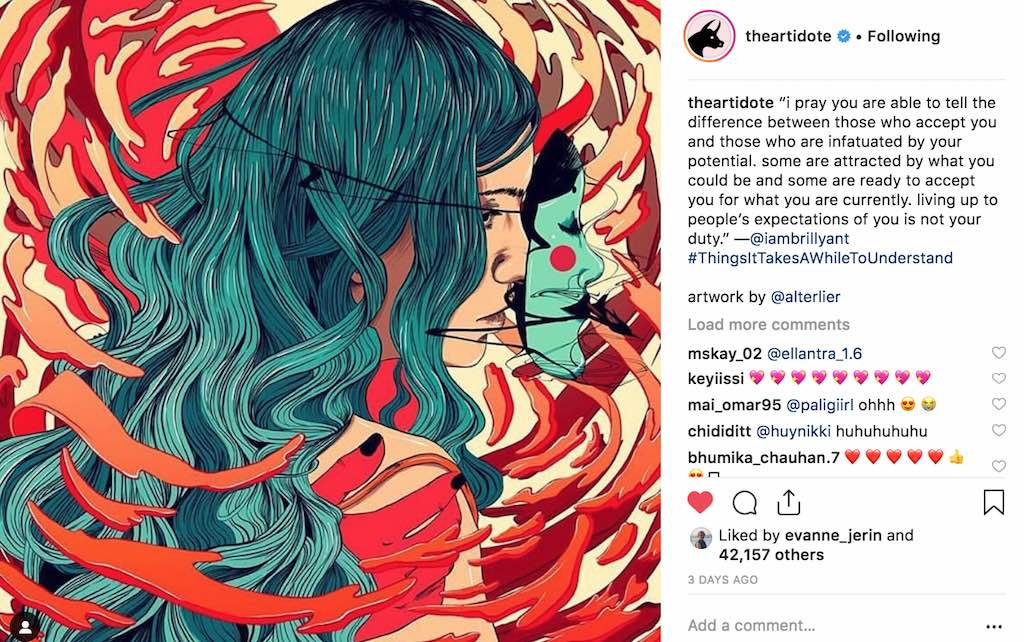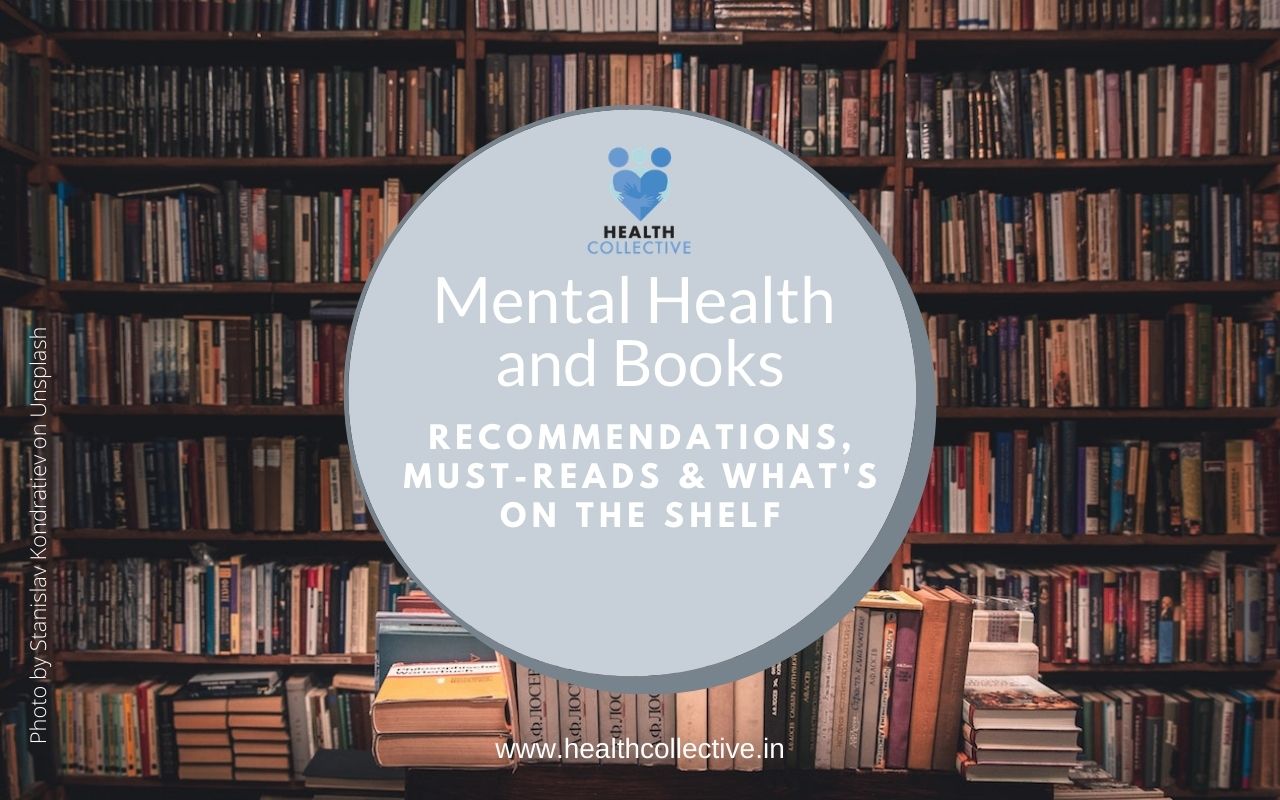How to Own Your Story and Move Beyond a Diagnosis of Depression or BPD
By Amrita Tripathi
Last weekend at the Jaipur Literature Festival, it was a privilege to speak to Dr Shelja Sen, well-known psychologist, co-founder of Children First, and the author of Reclaim Your Life, as well as Shabri Prasad Singh, the brave author of Borderline, a novel on borderline personality disorder. Both women are inspiring, passionate and courageous but above all, advocates for mental health awareness and tackling stigma and prejudice in India, choosing to share some very vulnerable moments of their journeys, in their books. Here’s a lightly edited version of our conversation below, with thanks to Sukanya Sharma for her help.
Borderline: Reclaim Your Life: Shabri Prasad Singh and Shelja Sen in conversation with Amrita Tripathi https://t.co/nFQf49W3nR
— ZEE Jaipur Lit Fest (@ZEEJLF) January 27, 2019
Amrita Tripathi: You’ve been a psychologist with 30 years of experience; at the same time you chose to write this story (Reclaim Your Life) including a very personal part of your journey. Tell us a little bit about why you chose this way of telling the story, and what led to it?
Shelja Sen: There’s always a myth that people have, that a certain kind of people have mental health problems…certain kind of people have depression — they are the flawed ones, they are the ones who are not strong enough, and though I was working as a therapist myself maybe somewhere I carried this within me. When I went through depression, it took me a long time to really accept that, because depression happened to other people, not people like me. I was supposed to be the strong one, the happy one, in fact I was a therapist myself so how could I have depression?!
And for me, from that time — this was like 20 years ago — and now, it has been a journey. And I have made it a decision to talk about it, not just in my book here but in my workshops, in my columns. Sometimes when I meet a client who might be going through depression, and really suffering and saying, ‘I don’t think anybody can understand’, I can tell the person, you know, ‘I get it, I’ve been there’. The most important thing is for me, the decision was that I’m not going to let depression define who I am. I want it to be known that I have depression, I’ve struggled with depression in the past, along with that, there are so many other stories to me.
So the whole thing, like in my book, I talk about, We need to question — there’s so much shame, silence, and stigma against mental health, about mental health — we can’t talk about it. We need to have conversations , it’s extremely important we do that. That’s the reason I’ve brought my personal story into it.
Amrita: And very powerfully so, thanks for that. I think we talk about the need to ‘normalise’ conversations (on Mental Health), move beyond labels. Shabri… why did you choose to tell this story (Borderline) in the form of a novel? Not, let’s say, non-fiction or a memoir?
Shabri Prasad Singh: It was supposed to be a book of non-fiction. I wrote it in one month as a book of non-fiction. But due to the sensitivity, the names of people (I didn’t want to name some people in the book), I wanted to tell it like a story and also have a little bit of artistic liberty to tell my story in a way that will connect with the readers. Why did I choose to write this book? When I was diagnosed with Borderline Personality Disorder in 2012, I just researched and researched and gained so much insight into it that I wanted to help other people. And how could I help other people? By telling my story, telling it in a way that people can relate to, and believe me, a lot of people email me saying that ‘We think we’re going through similar things. We really loved it that one of the solutions you gave in your book is self-love, and try to love yourselves.’ That’s one thing that borderlines don’t do. They don’t have any self-love within themselves; it’s a process, it’s a journey.
Amrita: What would your message be to a younger Shabri? You’ve written this book in a way to connect to other people who might be going through something similar, but it’s also an ode to yourself in a way, to your journey, you’re owning your story. What would your message be to a younger self?
Shabri: There are a lot of things I would do differently, and I would want younger people to do differently...I would tell myself to be a little bit more kinder, a little bit more gentle towards myself and not run after things that are not meant to be. That’s my message to everybody and to myself.
Amrita: Dr Sen? A message for your younger self?
Shelja: A message I would have for my younger self, as Shabri says…There’s a term I use in my book throughout – compassionate acceptance. Another quote from the book: ‘The problem is the problem, the person is not the problem’.
So compassionate acceptance is that this problem is there, but it’s separate from me. It doesn’t define me. This is not who I am. But this problem is there. So there’s a compassionate acceptance, there’s a separation from the problem, and also one extremely important thing is to tell your story — like Shabri has done. A story is not a story until it has found an audience. We need to find an audience, we need to speak, I would say that to everybody out here, you need to talk about it, you need to have these conversations, this is what I would tell my younger self.
Another thing – grow your tribe. Find people who you feel comfortable with, who you trust. Like in my book I talk about, find your North Star, find your thing. Find something that gives your life meaning.

Amrita: You really need to have that safe space, the importance of tribe is people you can trust, whether it’s professional people or people who love you… In Reclaim Your Life, you have these exercises for us to do as we read…Can you talk about the Radio of Reactivity idea?
Shelja: The way we are wired, in evolutionary terms if you see it, we were wired in a way that we had to cope with the environment, a very dangerous environment. Our brain was wired in that sense – we were hunters, gatherers, we were out, and if we heard a loud sound we would have to turn and say – Okay, what’s happening…I have to keep myself safe.
We are in a relatively much safer environment, but our brains are still wired in the same way. If I were to make it very simple – there’s a pre-frontal brain, which is the thinking part of our brain. Whereas there is another emotional brain, the limbic system, the part which fires up every time we are anxious. So what I have done in my book is I have tried to explain how we have a mindful brain, and we have a reactive brain. And many times it’s like a see-saw. Your reactive brain becomes high, the mindful brain becomes less. Reactive brain is always churning with emotions — it could be anxiety, intense emotions like jealousy, hatred, obsessions of different kinds, and it’s very important for us to build that sense of mindfulness in ourselves. I have this simple formula which any young person who comes to me would know: ABC.
Alert: My brain is churning right now, in a state of negativity- reactivity, it could be anxiety, fear, judgement, a sense of doom and gloom
Breathe out: Imagine you’re a dragon, you have a feather in your hand. You blow. Breathe in and out. Take in the oxygen. It’s very important
Change the channel – the negativity channel. Like when you’re watching a TV program and something terrible comes on TV, you change the channel. Sometimes you can train your mind to change the channel. So this Radio that keeps on churning in your brain, sometimes you have to just do ABC and change the channel of the radio
Amrita: Shabri, the reason you’ve written this book is, in many ways, to demystify what Borderline Personality Disorder is. It’s not something everyone has heard about. Do you want to talk a little bit about it? And read a bit?
Shabri: So Borderline Personality Disorder is a sort of Emotional Dysregulation. Your emotions are very intense. And there are 9 symptoms, and you have to have 5 of those to be diagnosed with Borderline Personality Disorder. I had 9 of them.
To put it in layman’s term, and simple language – it’s a PD(Personality Disorder), so it’s ingrained in your personality. So you’re like a child, constantly struggling for affection, for love, for warmth, whether it’s from your partner or parents or your siblings. You’re empty – you want something. This child needs a way out. The child wants to swim and learn how to swim. So this is borderline personality disorder.
I’ve written a poem in the book, in a chapter when I got my diagnosis, I’ve written this poem which defines the borderline characteristics:
The chapter’s name is An Invisible Illness:
Constant emptiness,
Forever mourning loss
Fearing abandonment,
Unbearable rejection,
Our emotions are always magnified.
Harming ourselves and others
Our impulses have sharp claws
Obsession becomes our tangle
Regret for us is mangled,
We end up hating ourselves
We are deeply misunderstood creatures
These are some of the salient features
These are the borderline flaws.
(Applause)
Amrita: What strikes me about both of you; it really is courage, I think to be able to share your story and say, look… This is an era where we all want to share our air-brushed, photo-shopped, you know, we want to show our shiny happy best selves. And both of you have chosen to be vulnerable…Was there any thought running through your head when showing how vulnerable people can be?
Shelja: There’s a lot of shame around mental health. A very core part of it is – we don’t want to talk about it is because we don’t want to be vulnerable. Because if we are vulnerable, that means we are showing our weakness to other people. The way I have designed my book, I don’t call them chapters, I call them light posts; they break down to an acronym COURAGE. So on the one hand it is being vulnerable, but vulnerability also brings in courage. The only way we can reach courage is through being vulnerable. There’s no other way of reaching courage.
The acronym COURAGE stands for:
Compassionate acceptance
Owning your light
Upholding personal agency (because it’s very important as a turning point; a young person said this book should be titled Shit Happens, Deal With It! That’s agency)
Reclaiming our story
A day at a time (How important it is we learn to live a day at a time, especially for all those of you going through a difficult time)
Grow your tribe
Enduring adversity – and finding your North Star
So the core thing is – as Shabri said – life is a journey, and depression is a human condition. It’s not a diagnosis. I don’t like to believe it’s a diagnosis. It’s a human condition. Sometimes we hit potholes, we hit roundabouts, we hit rough weather, but it’s a journey that we keep moving to find our North Star.
Amrita: With both of you, what’s interesting, because you’ve shared your journey, there is an important message, that whatever you’re going through, you’re actually not alone. One of the points we do see today, even in urban, privileged India is confusion, where do I go for help? There’s shame, there’s fear, there’s stigma…What would your one point of advice be to somebody who might be going through something that they recognise with in a story, or be worried about?
Shabri: There is no shame in getting medical help. Going to a psychiatrist, or a psychologist – there’s no shame in taking medication too. I take medication, I go to a psychiatrist, I go to weekly therapy. That is my message. There is nothing to be ashamed about. There is the stigma, there is the taboo, but if there is a problem, we need to identify it, we need to accept it, and then we need to find solutions towards that problem. That would be my message for everyone.
Amrita: That’s very important for families and loved ones to know, right?
Shelja: My message would be for the families. There are three D’s that I talk about which sometimes families end up doing.
Dismissing – Dismissing the problem. ‘You’ll just snap out of it. Be strong. Stop being so overdramatic.’ I’m sure a lot of you have heard that
Dumping – Everything becomes – “…oh, because he has depression”. I’m bringing up a gender issue here, many times women are given the diagnosis of depression without understanding the nuances of what they are struggling with
Defining – When you start defining the person with that one single diagnosis.
So for all parents, we need to step away from Dismissing, Dumping and Defining.
Amrita: And the problem is the problem, the person isn’t the problem!
Shabri: No one is just one thing, we don’t have to go too much into the labels, as we said earlier.
Questions from the Audience:
Q: Most MH disorders have symptoms that rub other people the wrong way. For example, I’m an ADHD case, and sometimes when a person is talking to me or saying something important or personal, I space out, and usually, I can’t help it. So do we expect our friends to research our disorders? Or how do we sensitise friends towards mental health disorders? Do we expect them to make an effort to understand, or do we dismiss it as a non-issue?
Shelja: That’s a beautiful question. Please don’t tell them to research it. Because they will start defining you as that. So please don’t do that. But people, who you see as your tribe, and people you feel emotionally safe with, it’s very important for you to tell them that – ‘You know what, there are certain things that I need to tell you about me…”
At the end of the day you don’t want people to see the big label of diagnosis over your head, but you want them to be aware that there may be times where you may not be around and it’s not because you don’t care but because you are struggling with something and you can’t be there for other people. And also tell them how you want them to be with you.
Q: How early should psychological education be given to children? What form? Does it have any disadvantages?
Shelja: Psychological education first needs to start with adults. The teachers. Teachers need to understand how they need to build emotionally safe spaces for inclusive and creative learning. So we need to start with teachers, parents, policy makers – that’s their responsibility. We need to make this world a safer and better place for our children. And yes, then we need to start with children at a very young age. Understanding emotions, understanding others’ emotions, building relationships,
Shabri: I go to schools and I give psychological education. I believe that people taught us how to learn, how to go forward, ahead in life, but nobody taught us how to be happy.
Q: Years down the line, how much understanding has your family given you when you put yourself and them out to everybody? How have you and they coped with this?
Shabri: My family has supported me immensely. My family made the decision that it was time for medical intervention and it’s time for you to go see a psychiatrist. How did I cope? I listened to my doctor. It was very important for me to listen to my doctor, and my therapist, and take my medication.
Shelja: I guess It was helpful that I’m married to a psychiatrist. Before publishing the book, I did talk to my children about it, and I told my mother because I have mentioned her in the book. And they were absolutely okay, and supportive.
Q: Is sensitising people about depression a double-edged sword? Are we over-sensitising depression and making people who are sad/upset, believe they are depressed?
Shelja: I don’t believe there’s anything called over-sensitising. I think we need to have many conversations on mental health. We need to have these conversations at home, in school, out in the community, we need to write more books on this, we need to have more movies on this. We have 1 in 4 people who struggle with mental health problems. India leads the suicide rate in the world. 40% of female suicides happen in our country – so there’s nothing like over-sensitising.
Q: Why are there not enough 12 step programs in India? Everybody seems to want to work their own program. Everybody wants to play their own god, they have their own solutions as opposed to working a program.
Shabri: The 12 step program didn’t really help me. There are Alcoholic Anonymous groups, there’s NA also, so you can definitely look up those programs and be a part of them.
Q: Is there a specific event that made you want to write the book?
Shelja: I’m a writer, and I talk about my experiences, what I feel most passionately about – so that’s the reason I wrote the book.
Shabri: I wanted to write about my illness, and also help myself in the process. Writing is a cathartic experience. It’s a beautiful journey you undertake when you start writing about your experiences. Also, I feel like it has helped a lot of people. We need to talk more about mental health illnesses.
And on that note, we mentioned The Health Collective as we wrapped up the session. Feel free to share your stories here, and send in your feedback!
Feature Image by Farsai C. on Unsplash




Pingback: Covid-19 and You: Therapist Dr Shelja Sen Shares a Message for the Batch of 2020 – The Health Collective India
As soon as I discovered this site I went on reddit to share some of the love
with them.